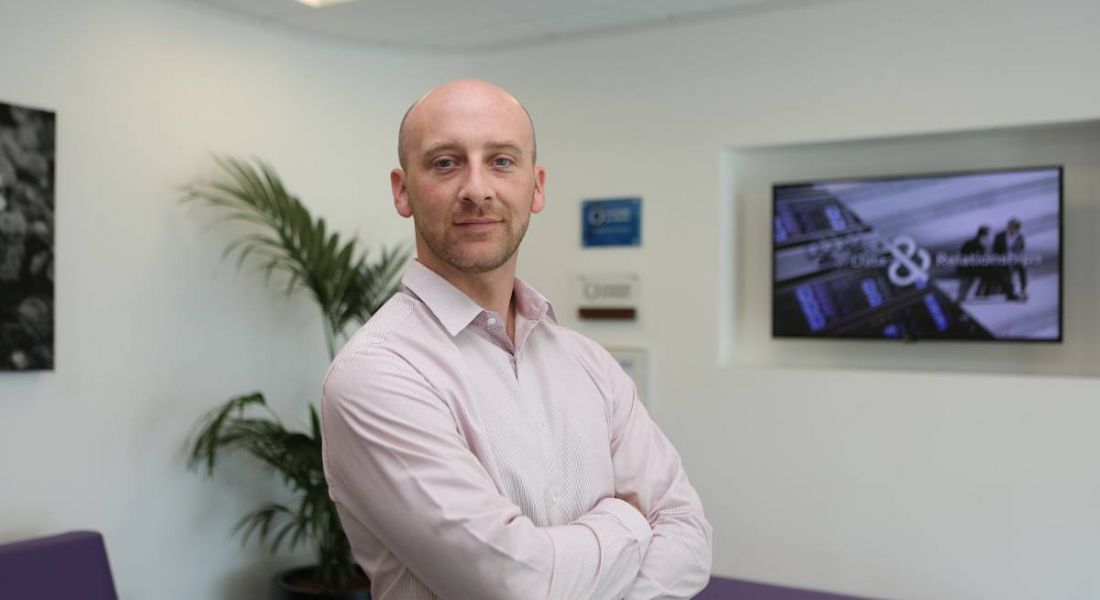A principal engineer in Dun & Bradstreet told Siliconrepublic.com about the biggest surprises and challenges he has faced in his career.
When you just start out in your technology career, it can feel very overwhelming. There will be plenty of senior people around you who seem to know absolutely everything.
However, Paul O’Neill, a principal engineer at Dun & Bradstreet, said he came to realise that this was very much a myth and that, even at a junior level, he could make a valuable contribution to the business. Here, he shares a bit about his career journey and his advice for future talent.
What first stirred your interest in a career in this technology?
Ever since I was young, I have been intrigued by computers. I wrote my first program when I was 12 and have never really stopped.
What education and other jobs led you to the role you now have?
I have a BSc in science from UCD, but I would say that my interest in computers led me to that degree rather than the other way around. Back then, there was no dedicated computer science degree offered, so I got to experience things like physics, geology and psychology, along with the more obvious maths and computer-oriented courses.
What were the biggest surprises or challenges you encountered on your career path?
In the beginning, it was easy to assume that everyone with more experience than me knew more about everything than I did, but the field is so broad that no one knows everything about everything. Realising that I could make a valuable contribution to a technology choice or design decision, even as a more junior employee, was something of an eye-opener for me. It allowed me to be much more involved during technical discussions.
For me, the biggest challenge was accepting the realities of being part of a business. The business priorities do not always line up with technical priorities, and as engineers we need to be pragmatic about our solutions to balance business needs against technical desires. Learning how to compromise on a delivery without piling on tech debt is a skill that every engineer must learn.
Was there any one person who was particularly influential as your career developed?
I’ve worked with many great people and taken lots from each of them. It takes all sorts of skills to succeed in the tech industry, so typically your team is made up of people with various complementary skills. As I said earlier, no one knows everything about everything!
What do you enjoy about your job?
I have always enjoyed problem-solving and working out different ways of doing things. I get great satisfaction from building something and then watching it do exactly what it was supposed to do.
What aspects of your personality do you feel make you suited to this job?
I’m naturally an inquisitive person who likes poking at things to see how they work, to see how they might fail and to see how they might possibly be done better. I think this is a pretty good description of what an engineer is and this approach has stood by me in my career so far.
How did Dun & Bradstreet support you on your career path?
From a technical development point of view, Dun & Bradstreet affords me the time and resources to investigate new technologies and determine if they are suitable for our use cases. This can range from time allocated for research and development to more formal training and everything in between.
They have also allowed my responsibilities to grow as I have progressed within the company, from being a junior team member right up to leading technical teams and engaging with C-level executives.
Finally, the culture of accountability has helped shape my approach to my job, ensuring that I understand the whole life cycle from business need to product delivery and support.
What advice would you give to those considering a career in this area, or just starting out in one?
Try to learn as much as you can about the business and don’t just focus on the technology aspects. Of course, being up to date with technologies is important, but to be a valuable employee you need to understand what drives your business and makes it successful. Then, identify how technology can help enable that success.
Want to work at Dun & Bradstreet? Check out its careers page for current vacancies.




